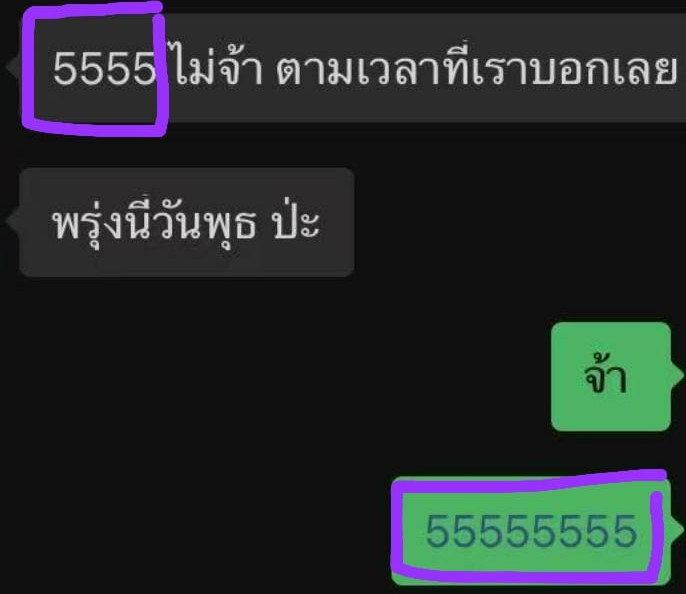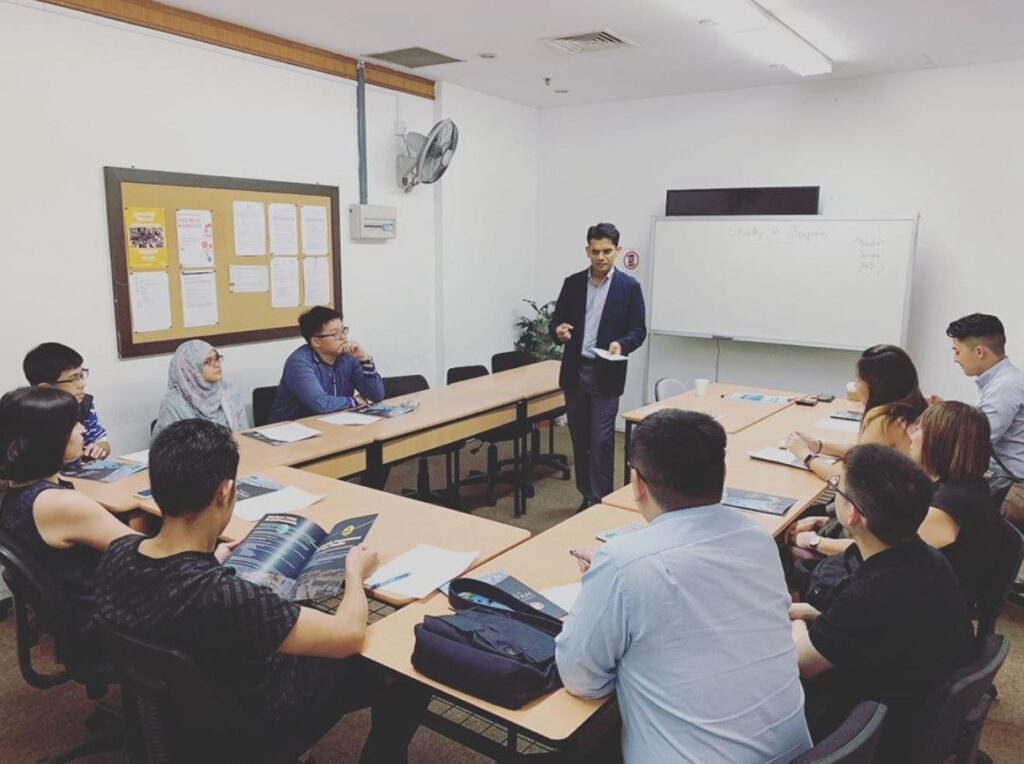As Southeast Asia neighbours, there are definitely similarities between the Thai Language and Singlish. This post will explore 4 similarities between Thai and other Asian languages Singaporeans are familiar with.
1. Similar to Singlish, Thai ending particles will change the meaning of the sentence
In Singlish, ending particles will change the meaning of the sentence. For example, “okay lor” (expressing reluctance) is very different from “okay meh” (expressing disbelief). Similarly, the Thai language uses ending particles to convey emotions and change the nuance of the sentence. For example, “pbai lor” – “pbai” means go, “lor” expresses “really?” so “pbai lor” means – “do I really go?” Whereas “pbai si” – “si” is an ending particle to emphasize something. So “pbai si” is ordering the listener to “go!”. Hence, even though you might learn some ending particles from Thai lakorns/dramas, it is always good to check with someone who knows Thai well enough if the usage of the ending particle is correct. You do not want to be rude unknowingly and order someone to do something when your intention is to seek confirmation.
Check out this post on the list of Thai ending particles
Interested to learn the Thai Language? Here’s what you can explore!

Practice your Thai speaking skills and learn how to use Thai to express everyday small talk.

A serious Thai learner aiming to master Thai reading and writing? Start off by learning to text in Thai!

Go for regular Thai classes. Use your SkillsFuture credits to offset your Thai Language course fees!
2. Similar to Singlish, Thai is a “lazy language” with shortcuts
Sometimes, it is even easier to translate from Singlish into Thai vs English into Thai. If you do a direct English to Thai translation when you’re trying to string together Thai sentences, you will realise that the “Thai way” of expressing yourself includes a lot of filler words and excludes a lot of words you would think is necessary to make the sentence complete. Likewise, when you directly translate Thai to English, most of your sentences will end up as broken fragments and resembles Singlish sentences instead. I’ve provided 2 examples below:
| English | Singlish | Thai (script + Karaoke) |
| Are you sure this will work? | Will work meh? | Ja work lor? / จะเวิร์คหรอ |
| I am fine with anything. | Anything also can. | Arai kor dai / อะไรก็ได้ |
3. Thai tones are similar to Chinese tones
For Chinese Singaporeans learning to speak Thai, good news! The Thai tones can be roughly mapped to the tones in the Chinese language. Both languages have five tones: low, high, rising, falling and flat/no tone for the Thai language vs tone 1, 2, 3, 4 and no tone for the Chinese language. I’ve put into a table below on how the tones can be roughly mapped to each other. Please note that this is not a 100% match – it is just a rough guide I made for myself when I was trying to get used to the Thai tones.
If you are a serious Thai language learner, learning how to read and write Thai will help you master the Thai tones more quickly. You can check my article on “Should I learn Thai reading and writing?” for more inspiration.
| Thai Tones | Chinese Tones |
| No equivalent Thai tone | 1st tone |
| Rising tone (e.g. หัว huă) | 2nd tone (e.g. 华 huá) |
| Low tone (e.g. ดุ dù) | 3rd tone (e.g. 赌 dǔ) |
| Falling tone (e.g. ได้ dâi) | 4th tone (e.g. 带 dài) |
| Mid/flat tone (e.g. มา maa) | Neutral tone / 轻声 (e.g. 吗) |
| High tone (e.g. นับ náp) | No equivalent Chinese tone |
4. Some Thai words sounds similar to Teochew, a Chinese dialect
One thing I’ve noticed when interacting with my Thai friends’ parents is that a lot of the older Thai Chinese speak fluent Teochew, a Chinese dialect. Most of the Chinese Thais come from China and a lot of them speak Teochew. Hence, it is of little wonder that the Thai language has “borrowed words” from the Teochew dialect. Some examples of Thai words sounding similar to Teochew are listed below:
| English Word | Thai word / Pronunciation | Teochew word / Pronunciation |
| Chair | เก้าอี้ kao yi | 交椅 gao yi |
| Older sister | เจ๊ je | 姐 che |
| Money | เงิน ngen | 银 ngeng |
Get help with learning to read, write and text in Thai today! 🥰
About the author – see the About page for more information
Joanne Tan is an aspiring polyglot and has so far mastered English, Chinese and Thai languages. She first started learning Thai in 2015 before staying in Bangkok for 5 months, and then continued studying Thai up to Advanced Levels at the National University of Singapore. In 2017, Joanne was awarded ‘Advanced Thai Proficiency’ by the Sirindhorn Thai Language Institute of Chulalongkorn University. Today, Joanne freelances as a Thai Language teacher and helps her Thai friends actively promote Thai culture.
